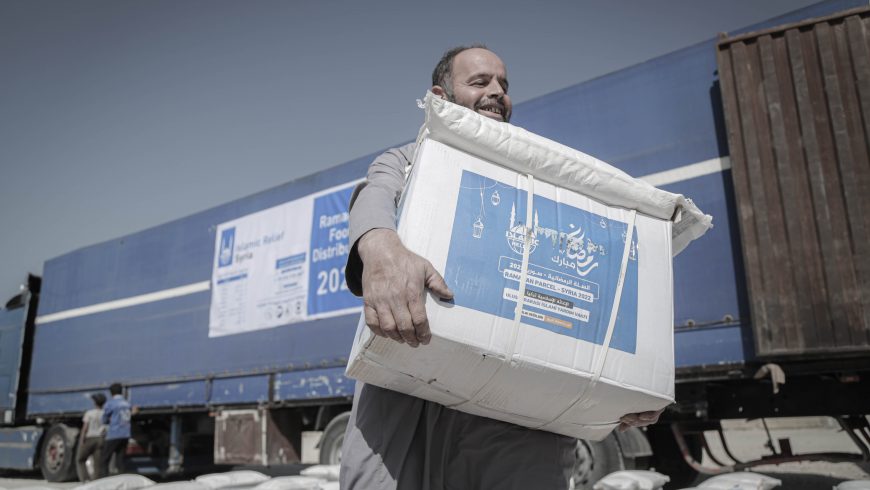Islamic Relief provided food parcels to more than 1.3 million people during the holy month of Ramadan, despite unprecedented challenges with rising food prices and lack of availability in many countries.
The war in Ukraine is exacerbating the global hunger crisis – disrupting supplies of wheat and oil, pushing prices up and leaving many families unable to afford to buy basic food.
Food packs containing staples such as rice, beans, flour, dates, oil and sugar have been distributed in 33 countries in Africa, Asia, the Middle East and Europe. As well as food, Islamic Relief has also provided impoverished families with cash so they can buy what they most need, and food vouchers to use in small shops and support local economies.
- In the Horn of Africa, where the worst period of drought in decades has pushed many families into hunger and destitution, Islamic Relief delivered a combination of food parcels and cash assistance for more than 100,000 people in Ethiopia and more than 70,000 in Somalia.
- In Afghanistan, where the economic collapse over recent months means a staggering 95 per cent of people do not get enough to eat, Islamic Relief teams distributed food parcels for more than 200,000 people across the country.
- In Yemen, seven years of conflict have left nearly half of young children malnourished. Islamic Relief teams distributed food parcels and food vouchers to benefit more than 150,000 people.
Islamic Relief has also distributed gifts such as clothes and school uniforms to around 70,000 children in 13 countries including Syria and the Occupied Palestinian Territory.
Zaheer Afzal, who has coordinated Islamic Relief Worldwide’s Ramadan distributions for over 10 years, said:
“Global hunger is rising, due to many factors including the impacts of the Covid-19 pandemic and now made worse by the crisis in Ukraine. These Ramadan food parcels provide poor families with a vital lifeline at this critical time. But the combination of rising food and fuel prices and disruption to supply chains has made this the most challenging Ramadan distributions that I can remember. It’s getting ever more expensive to fill even basic food parcels and to transport them to remote communities.
“But thanks to our supporters around the world and the efforts of our teams on the ground, we have still managed to reach even more people than last year and spread some hope around the world.”
The impacts of the crisis in Ukraine are being felt all over the world, and could push millions of people into famine. Islamic Relief is calling for rich nations to provide more support to help poorer countries cope with the impact of rising food and energy costs.
Notes
In 2021, Islamic Relief reached 1.2 million people with Ramadan food packs
